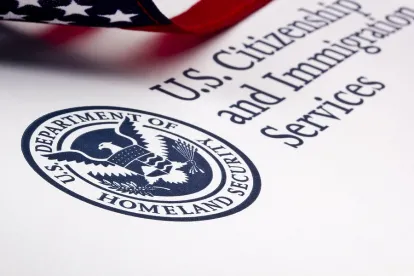EB-1-B is the category of priority worker immigrant visa (permanent resident) classification reserved for Outstanding Researchers and Professors. EB-1-B petitions are not reviewed by the U.S. Labor Department, nor influenced by recruitment of American workers, salary issues, or the job market. Rather, EB-1-B individuals are presumed to be internationally recognized as ‘outstanding’ due to their high level of achievement. Successful EB-1-B petitions need not meet as high a standard as successful EB-1-A petitions. EB-1-B petitions are only sponsored by the beneficiary’s employer and cannot be self-petitioned. EB-1-B approval requires a permanent or tenure-track job at a university or in a research department of a private company. The beneficiary must have three years of post-degree work experience in the academic field prior to application.
To qualify as an outstanding professor or researcher, an applicant must provide evidence that establishes at least two of the following six criteria: meeting two of the evidentiary standards does not compel a finding that the individual is an outstanding researcher or professor; the quality of the evidence provided, not exclusively the number of criteria that are met, is taken into consideration.
A. Receipt of major prizes or awards for outstanding achievement in the academic field: Evidence should include documentation of receipt of the award (e.g., copies of the prize or award, certificates, or letters indicating receipt of the award), as well as information about the criteria for the award. Receipt of a competitive fellowship might satisfy this criterion.
B. Membership in associations in the field that require outstanding achievement of members: Evidence for this criterion may include copies of membership certificates, cards, or letters indicating membership. Evidence must also include information about the criteria for membership. Membership in many professional societies would not qualify, but election to fellowship in a professional society might qualify.
C. Published material in professional or major trade publications or other media about the applicant that is related to his/her work in the field. Copies of articles written by others that analyze or discuss the applicant’s work and/or accomplishments, including formal published reviews of his/her work, could serve as evidence for this criterion. Audio or video tapes of interviews about the applicant’s work, as well as copies of papers written by others in which his/her work is evaluated, would also be acceptable forms of evidence. Citations of work without evaluation are not enough to meet this criterion.
D. Service as the judge of the work of others: Copies of letters from editors of journals or grant-funding agencies requesting that the applicant review a proposal or paper submitted for publication are examples of the type of evidence required for this criterion. Evidence may also include copies of journal pages or conference programs or proceedings listing reviewers, as well as service on an editorial board of a professional journal, membership on a discussion panel, or membership on the board of a professional society. Acknowledgment of service on the dissertation committee of a Ph.D. candidate can also serve as evidence for this criterion.
E. Original scientific and scholarly contributions in the field: Evidence for this criterion would include copies of patents or documents acknowledging progress toward a patent, as well as testimony from other scholars on the applicant’s contributions to the field.
F. Publications and presentations: Evidence for this criterion may include copies of the title pages of papers (showing authorship) that have been published or accepted for publication in international or peer-reviewed journals, or the proceedings of international or peer-reviewed conferences. Evidence should also include information about the journals and conferences that indicate that they are international and/or peer-reviewed. A list of citations of the applicant’s work in other professional publications is also useful.
Processing time at the USCIS can vary and often takes between three and eight months or longer. These petitions are currently eligible for Premium Processing, which would guarantee a response from USCIS within 15 days of receipt. For those in permanent academic and private research jobs, EB-1-B may be an expeditious pathway to permanent resident status.




 />i
/>i
